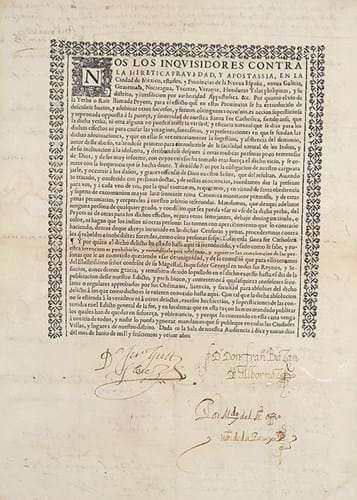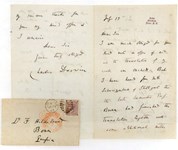
Sold at $24,000 (£16,900) in an April 12 auction held by Swann (25/20/12% buyer’s premium) was a somewhat dampstained folio album of around 235 leaves that presented both copies and original documents relating to the work of the silver mining estate of Luis de Castilla.
Profits from his mines, located at Taxco in the state of Guerrero, south-west of Mexico City, had begun to dwindle over the years and Castillo, whose wife, Juana, was a relative of Hernán Cortes, had accused his manager of fraud.
The evidence he assembled for a court case now provides a detailed picture of mining operations of the time as well as being a valuable social history of early colonial times in Mexico. Also sold for $24,000 – this time against an estimate of just $1000- 1500 – was a late 17th or early 18th century manuscript of the Catechism and lessons on the basic elements of Christian faith in Chinantec, an indigenous language still spoken in the state of Oaxaca.
Bound in contemporary vellum, the manuscript also contained part of a Spanish language census of the population around San Pedro Tepinapa, near Choapam.
Illustrated here is a very early Mexican broadside, printed in June 1620 and read aloud in 18 churches in Yucatan province. At the order of the Inquisition it forbids the use of peyote, an hallucinogenic cactus that had been part of indigenous religious rituals for millennia.
Signed by three inquisitors, this decree was sold for $20,000 (£14,085).














